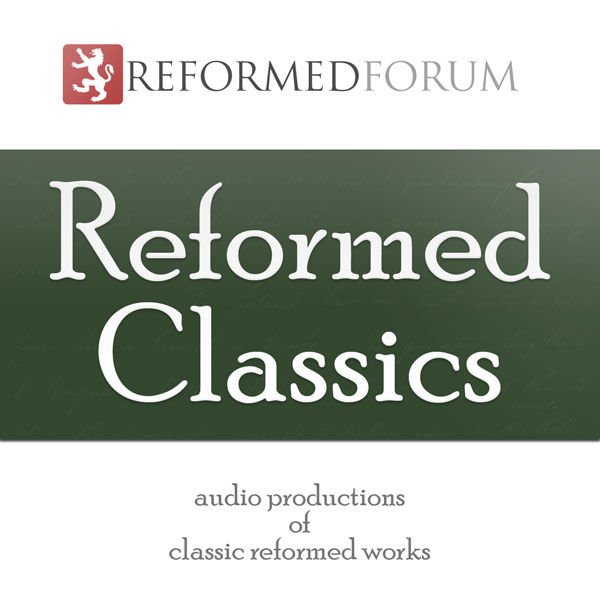
Reformed Classics
Reformed Theological Resources
- 18 minutes 32 secondsBook 2, Chapter 5, Sections 1–5 — The Arguments Usually Alleged in Support of Free Will Refuted, Part 1

Sections
1. Absurd fictions of opponents first refuted, and then certain passages of Scripture explained. Answer by a negative. Confirmation of the answer.
2. Another absurdity of Aristotle and Pelagius. Answer by a distinction. Answer fortified by passages from Augustine, and supported by the authority of an Apostle.
3. Third absurdity borrowed from the words of Chrysostom. Answer by a negative.
4. Fourth absurdity urged of old by the Pelagians. Answer from the works of Augustine. Illustrated by the testimony of our Saviour. Another answer, which explains the use of exhortations.
5. A third answer, which contains a fuller explanation of the second. Objection to the previous answers. Objection refuted. Summary of the previous answers.
Participants: Robert Tarullo
13 July 2016, 4:00 am - 21 minutes 42 secondsBook 2, Chapter 4, Sections 1–8 — How God Works in the Hearts of Men

Sections
1. Connection of this chapter with the preceding. Augustine’s similitude of a good and bad rider. Question answered in respect to the devil.
2. Question answered in respect to God and man. Example from the history of Job. The works of God distinguished from the works of Satan and wicked men. 1. By the design or end of acting. How Satan acts in the reprobate. 2. How God acts in them.
3. Old Objection, that the agency of God in such cases is referable to prescience or permission, not actual operation. Answer, showing that God blinds and hardens the reprobate, and this in two ways; 1. By deserting them; 2. By delivering them over to Satan.
4. Striking passages of Scripture, proving that God acts in both ways, and disposing of the objection with regard to prescience. Confirmation from Augustine.
5. A modification of the former answer, proving that God employs Satan to instigate the reprobate, but, at the same time, is free from all taint.
6. How God works in the hearts of men in indifferent matters. Our will in such matters not so free as to be exempt from the overruling providence of God. This confirmed by various examples.
7. Objection, that these examples do not form the rule. An answer, fortified by the testimony of universal experience, by Scripture, and a passage of Augustine.
8. Some, in arguing against the error of free will, draw an argument from the event. How this is to be understood.
Participants: Robert Tarullo
6 July 2016, 4:00 am - 18 minutesBook 2, Chapter 3, Sections 10–14 — Everything Proceeding from the Corrupt Nature of Man Damnable

Sections
10. A fourth Objection. Answer. Fifth Objection. Answer. Answer confirmed by many passages of Scripture, and supported by a passage from Augustine.
11. Perseverance not of ourselves, but of God. Objection. Two errors in the objection. Refutation of both.
12. An objection founded on the distinction of co-operating grace. Answer. Answer confirmed by the testimony of Augustine and Bernard.
13. Last part of the chapter, in which it is proved by many passages of Augustine, that he held the doctrine here taught.
14. An objection, representing Augustine at variance with himself and other Theologians, removed. A summary of Augustine’s doctrine on free will.
Participants: Robert Tarullo
8 December 2015, 5:00 am - 55 minutes 38 secondsBook 2, Chapter 3, Sections 5-9 – Everything Proceeding from the Corrupt Nature of Man Damnable

Sections
5. Though man has still the faculty of willing, there is no soundness in it. He falls under the bondage of sin necessarily, and yet voluntarily. Necessity must be distinguished from compulsion. The ancient Theologians acquainted with this necessity. Some passages condemning the vacillation of Lombard.
6. Conversion to God constitutes the remedy or soundness of the human will. This not only begun, but continued and completed; the beginning, continuance, and completion, being ascribed entirely to God. This proved by Ezekiel’s description of the stony heart, and from other passages of Scripture.
7. Various Objections.—1. The will is converted by God, but, when once prepared, does its part in the work of conversion. Answer from Augustine. 2. Grace can do nothing without will, nor the will without grace. Answer. Grace itself produces will. God prevents the unwilling, making him willing, and follows up this preventing grace that he may not will in vain. Another answer gathered from various passages of Augustine.
8. Answer to the second Objection continued. No will inclining to good except in the elect. The cause of election out of man. Hence right will, as well as election, are from the good pleasure of God. The beginning of willing and doing well is of faith; faith again is the gift of God; and hence mere grace is the cause of our beginning to will well. This proved by Scripture.
9. Answer to second Objection continued. That good will is merely of grace proved by the prayers of saints. Three axioms—1. God does not prepare man’s heart, so that he can afterwards do some good of himself, but every desire of rectitude, every inclination to study, and every effort to pursue it, is from Him. 2. This desire, study, and effort, do not stop short, but continue to effect. 3. This progress is constant. The believer perseveres to the end. A third Objection, and three answers to it.
Participants: Robert Tarullo
28 October 2014, 4:00 am - 16 minutes 29 secondsBook 2, Chapter 3, Sections 1-4 – Everything Proceeding from the Corrupt Nature of Man Damnable
Sections
1. The intellect and will of the whole man corrupt. The term flesh applies not only to the sensual, but also to the higher part of the soul. This demonstrated from Scripture.
2. The heart also involved in corruption, and hence in no part of man can integrity, or knowledge or the fear of God, be found.
3. Objection, that some of the heathen were possessed of admirable endowments, and, therefore, that the nature of man is not entirely corrupt. Answer, Corruption is not entirely removed, but only inwardly restrained. Explanation of this answer.
4. Objection still urged, that the virtuous and vicious among the heathen must be put upon the same level, or the virtuous prove that human nature, properly cultivated, is not devoid of virtue. Answer, That these are not ordinary properties of human nature, but special gifts of God. These gifts defiled by ambition, and hence the actions proceeding from them, however esteemed by man, have no merit with God.
Participants: Robert Tarullo
31 July 2013, 5:00 am - 24 minutes 44 secondsBook 2, Chapter 2, Sections 21-27 — Man Now Deprived of Freedom of Will
Sections
21. Fourth argument. Scripture ascribes the glory of our adoption and salvation to God only. The human intellect blind as to heavenly things until it is illuminated. Disposal of a heretical objection.
22. Human intellect ignorant of the true knowledge of the divine law. This proved by the testimony of an Apostle, by an inference from the same testimony, and from a consideration of the end and definition of the Law of Nature. Plato obviously mistaken in attributing all sins to ignorance.
23. Themistius nearer the truth in maintaining, that the delusion of the intellect is manifested not so much in generals as in particulars. Exception to this rule.
24. Themistius, however, mistaken in thinking that the intellect is so very seldom deceived as to generals. Blindness of the human intellect when tested by the standard of the Divine Law, in regard both to the first and second tables. Examples.
25. A middle view to be taken—viz. that all sins are not imputable to ignorance, and, at the same time, that all sins do not imply intentional malice. All the human mind conceives and plans in this matter is evil in the sight of God. Need of divine direction every moment.
26. The will examined. The natural desire of good, which is universally felt, no proof of the freedom of the human will. Two fallacies as to the use of terms, appetite and good.
27. The doctrine of the Schoolmen on this subject opposed to and refuted by Scripture. The whole man being subject to the power of sin, it follows that the will, which is the chief seat of sin, requires to be most strictly curbed. Nothing ours but sin.Participants: Robert Tarullo
24 July 2013, 5:48 pm - 19 minutes 49 secondsBook 2, Chapter 2, Sections 14-20 – Man Now Deprived of Freedom of Will
Sections 14-20
14. The power of the intellect, secondly, with regard to the arts. Particular gifts in this respect conferred on individuals, and attesting the grace of God.
15. The rise of this knowledge of things terrestrial, first, that we may see how human nature, notwithstanding of its fall, is still adorned by God with excellent endowments.
16. Use of this knowledge continued. Secondly, that we may see that these endowments bestowed on individuals are intended for the common benefit of mankind. They are sometimes conferred even on the wicked.
17. Some portion of human nature still left. This, whatever be the amount of it, should be ascribed entirely to the divine indulgence. Reason of this. Examples.
18. Second part of the discussion, namely, that which relates to the power of the human intellect in regard to things celestial. These reducible to three heads, namely, divine knowledge, adoption, and will. The blindness of man in regard to these proved and thus tested by a simile.
19. Proved, moreover, by passages of Scripture, showing, 1. That the sons of Adam are endued with some light, but not enough to enable them to comprehend God. Reasons.
20. Adoption not from nature, but from our heavenly Father, being sealed in the elect by the Spirit of regeneration. Obvious from many passages of Scripture, that, previous to regeneration, the human intellect is altogether unable to comprehend the things relating to regeneration. This fully proved. First argument. Second argument. Third argument.
Participants: Robert Tarullo
9 May 2013, 5:00 am - 18 minutes 54 secondsBook 2, Chapter 2, Sections 9-13 – Man Now Deprived of Freedom of Will
Sections
9. The language of the ancient writers on the subject of Free Will is, with the exception of that of Augustine, almost unintelligible. Still they set little or no value on human virtue, and ascribe the praise of all goodness to the Holy Spirit.
10. The last part of the chapter, containing a simple statement of the true doctrine. The fundamental principle is, that man first begins to profit in the knowledge of himself when he becomes sensible of his ruined condition. This confirmed, 1. by passages of Scripture.
11. Confirmed, 2. by the testimony of ancient theologians.
12. The foundation being laid, to show how far the power both of the intellect and will now extends, it is maintained in general, and in conformity with the views of Augustine and the Schoolmen, that the natural endowments of man are corrupted, and the supernatural almost entirely lost. A separate consideration of the powers of the Intellect and the Will. Some general considerations, 1. The intellect possesses some powers of perception. Still it labours under a twofold defect.
13. Man’s intelligence extends both to things terrestrial and celestial. The power of the intellect in regard to the knowledge of things terrestrial. First, with regard to matters of civil polity.
14. The power of the intellect, secondly, with regard to the arts. Particular gifts in this respect conferred on individuals, and attesting the grace of God.
Participants: Robert Tarullo
6 March 2013, 5:00 am - 11 minutes 23 secondsBook 2, Chapter 2, Sections 5-8 – Man Now Deprived of Freedom of Will
Sections
5. Certain things annexed to Free Will by the ancient theologians, especially the Schoolmen. Many kinds of Free Will according to them.
6. Puzzles of scholastic divines in the explanation of this question.
7. The conclusion that so trivial a matter ought not to be so much magnified. Objection of those who have a fondness for new terms in the Church. Objection answered.
8. Another answer. The Fathers, and especially Augustine, while retaining the term Free Will, yet condemned the doctrine of the heretics on the subject, as destroying the grace of God.Participants: Camden Bucey
7 July 2011, 1:46 pm - 16 minutes 55 secondsBook 2, Chapter 2, Sections 1-4 – Man Now Deprived of Human Will…
1. Connection of the previous with the four following chapters. In order to lay a proper foundation for the discussion of free will, two obstacles in the way to be removed—viz. sloth and pride. The basis and sum of the whole discussion. The solid structure of this basis, and a clear demonstration of it by the argument a majori ad minus. Also from the inconveniences and absurdities arising from the obstacle of pride.
2. The second part of the chapter containing the opinions of others. 1. The opinions of philosophers.
3. The labyrinths of philosophers. A summary of the opinion common to all the philosophers.
4. The opinions of others continued—viz. The opinions of the ancient theologians on the subject of free will. These composed partly of Philosophy and partly of Theology. Hence their falsehood, extravagance, perplexity, variety, and contradiction. Too great fondness for philosophy in the Church has obscured the knowledge of God and of ourselves. The better to explain the opinions of philosophers, a definition of Free Will given. Wide difference between this definition and these opinions.
Participants: Camden Bucey
18 May 2011, 6:09 pm - 11 minutes 19 secondsBook 2, Chapter 1, Sections 8-11 – Through the Fall and Revolt of Adam
Sections
8. Definition of original sin. Two parts in the definition. Exposition of the latter part. Original sin exposes us to the wrath of God. It also produces in us the works of the flesh. Other definitions considered.
9. Exposition of the former part of the definition—viz. that hereditary depravity extends to all the faculties of the soul.
10. From the exposition of both parts of the definition it follows that God is not the author of sin, the whole human race being corrupted by an inherent viciousness.
11. This, however, is not from nature, but is an adventitious quality. Accordingly, the dream of the Manichees as to two principles vanishes.Participants: Camden Bucey
29 June 2010, 5:42 pm - More Episodes? Get the App
Your feedback is valuable to us. Should you encounter any bugs, glitches, lack of functionality or other problems, please email us on [email protected] or join Moon.FM Telegram Group where you can talk directly to the dev team who are happy to answer any queries.
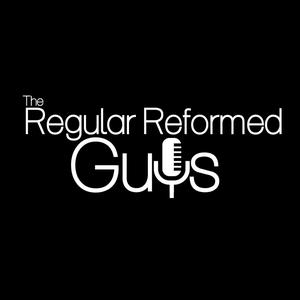 Regular Reformed Podcast
Regular Reformed Podcast
 Westminster Confession
Westminster Confession
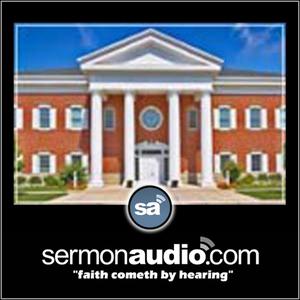 Puritan Reformed Theological Seminary
Puritan Reformed Theological Seminary
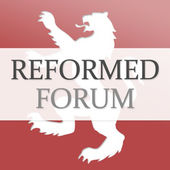 Reformed Forum: Westminster Theological Seminary Faculty
Reformed Forum: Westminster Theological Seminary Faculty
 East of Eden
East of Eden
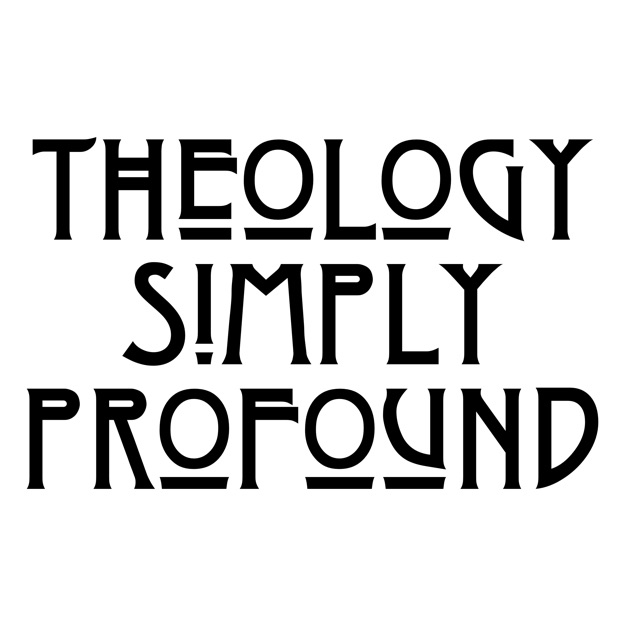 Theology Simply Profound
Theology Simply Profound